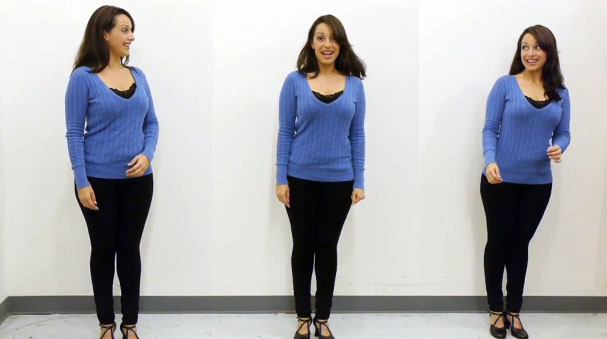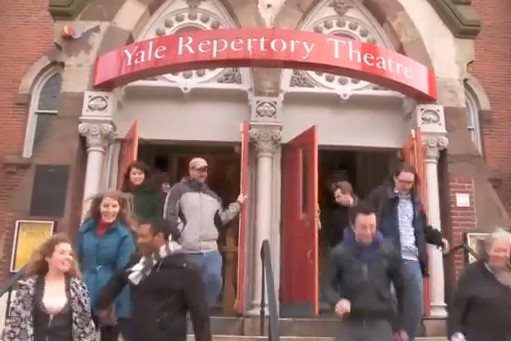Look over here! (Sort of!)
You're engrossed in an intense onstage dialogue with another actor. You want the scene to play as realistically as possible, so you face each other as you speak, staring intently into each other's eyes. On the other hand, you know there's an audience watching. How do you make sure the theatregoers get to see your face instead of having to watch your profile for the whole scene? This is an example of when cheating out comes in handy. It's a performance technique that helps maintain the illusion that characters are totally committed to the on-stage action, but simultaneously re-orients their performance so they are playing out towards the audience.
A skilled thespian can cheat out so subtly that you may not even notice. Each time she begins to speak, you might see her looking directly at her interlocutor. Then she pivots slightly out towards the audience, only to turn back again just as her line of dialogue comes to an end. In some shows the actors perform "full out," meaning that they turn to speak most of their lines directly to the audience. Sometimes called "presentational" style, this often works for comedy and musicals.
On the other hand, actors in dramas tend to adopt a more "internal" performance style. One reason for this is amplification. Before stage miking was perfected, actors had to face out toward the audience to make sure they were heard. That's not as necessary when a microphone picks up every word. You can play a scene whispering towards the back of the stage, and the audience will still hear every line. But the downside of playing towards the other actors, which sometimes means facing upstage is that the paying patrons are left looking at your side---or worse, your back. By cheating out you can find an ideal balance to play the scene perfectly.
Cheating out is especially important in large theatres with proscenium arches. In a smaller, more intimate "black box" or studio theatre, the intention may be to create the sense that the actors are performing as if there weren't an audience watching at all. For theatre-in-the-round, cheating out isn't an issue, as long as the performers remember to play to the whole 360-degree range of audience members.
--Ben Pesner
This video was made by Theatre Development Fund. Here’s the team:

